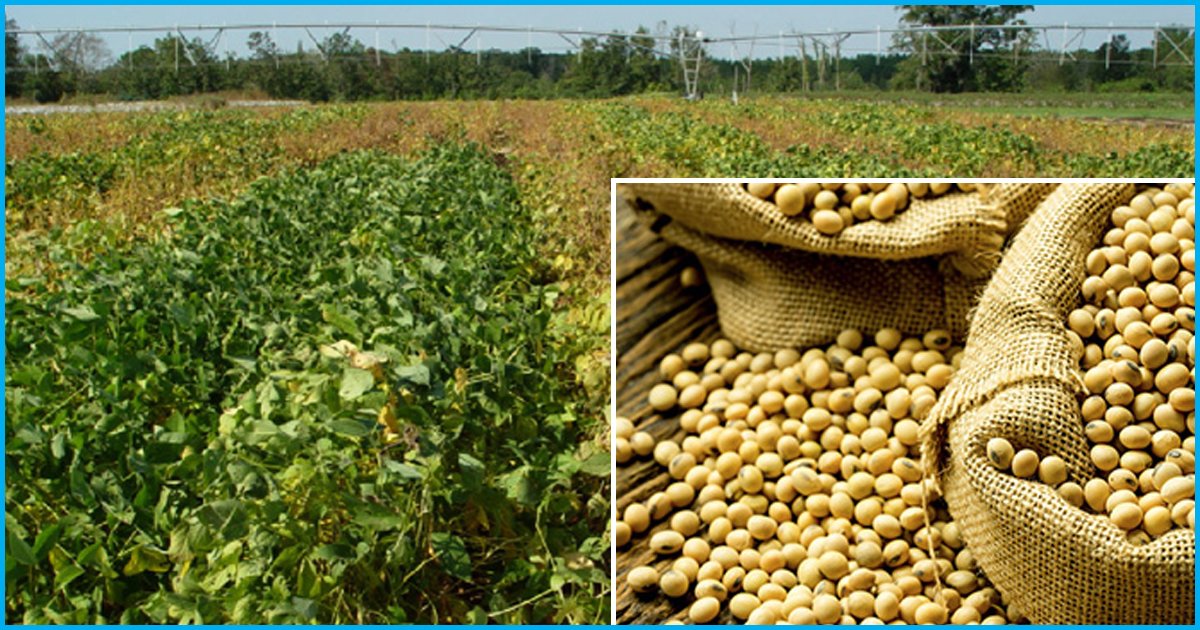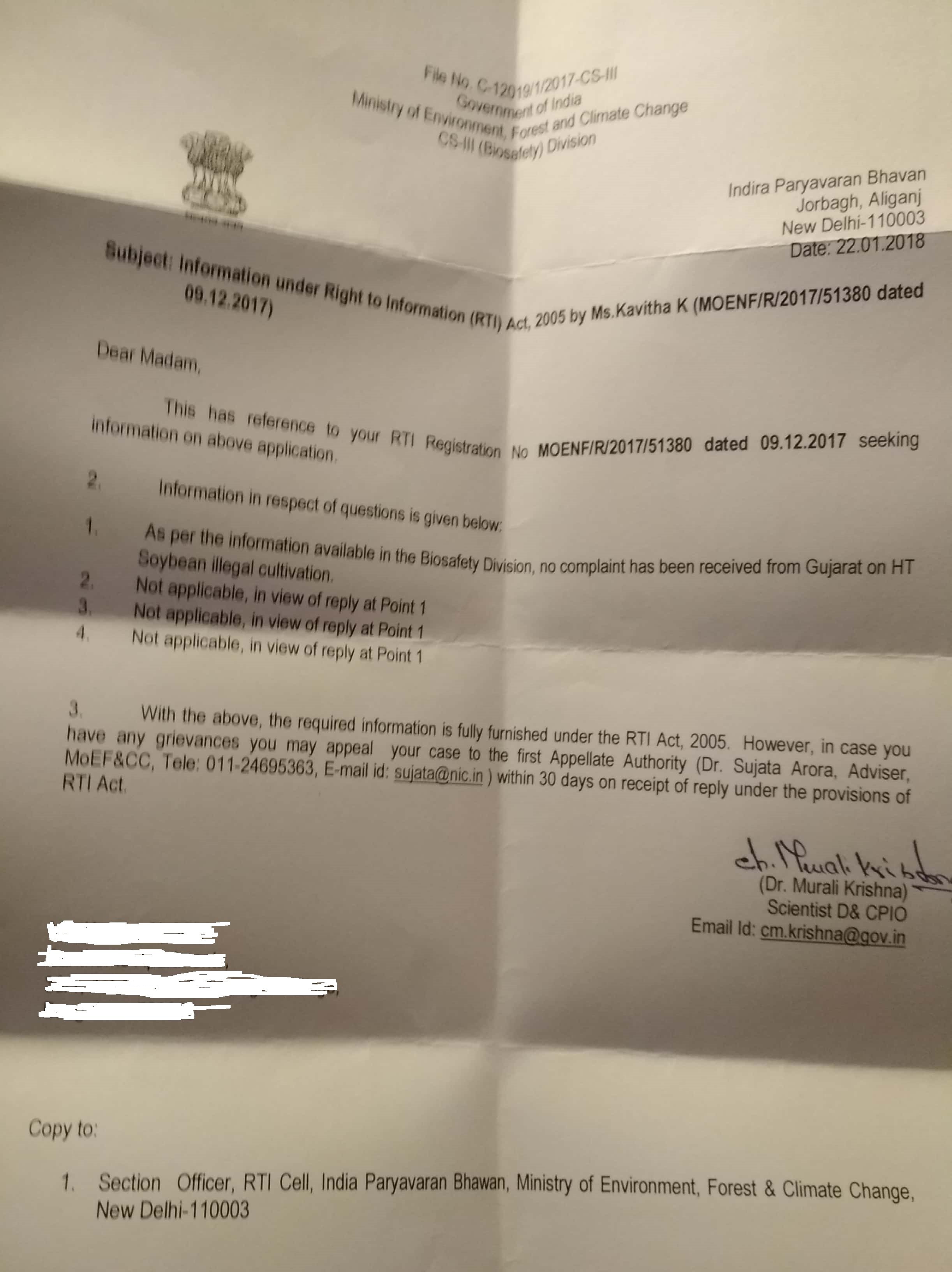
GEAC Informs DGFT Of Illegal Import Of GM Soy Years After Its Regulation Was First Violated
12 March 2018 12:42 PM GMT
The illegal imports of genetically modified soybean entering into the country have been notified to the Directorate General of Foreign Trade (DGFT), after a complaint was lodged with the Genetic Engineering Appraisal Committee (GEAC) and a Right To Information (RTI) application was filed to seek information about the same.
Laboratory tests revealed illegal cultivation of GM HT Soy
The RTI was filed by Kavitha Kuruganti of Alliance for Sustainable and Holistic Agriculture in November 2017, following a media coverage of illegal cultivation of Genetically Modified Herbicide Tolerant (GM HT) Soy in Gujarat. The Bharatiya Kisan Sangh had collected a sample of illegally cultivated soya. These samples were sent for lab testing and the same report was sent to GEAC along with the letter of complaint. The laboratory tests conducted by the Government of Gujarat also reportedly confirmed that these were indeed GM HT soya, which had not been granted permission for free trails, let alone large-scale production.
However, in the response to the RTI, dated January 22, GEAC had lied stating that it has received no such complaint about the GM HT Soy.

Following complaints to GEAC, Govt asks DGFT to stop import of GM HT Soy
A fresh complaint lodged with GEAC created ripples in the apex regulatory body forcing it to bring this issue to the notice of DGFT. This came months after the issue became public and years after violation GEAC’s own regulations.
Following the complaint received by GEAC, the Union Environment Ministry asked DGFT to stop the import of GM HT soya. The letter to DGFT said, ”In this context, it is informed that the GEAC, which is the regulatory body for Genetically Modified Organisms (GMOs) and products thereof, has not authorized or approved GM soybean or any other products derived from GM soybean seeds for import or cultivation in India.”
It further added, ”You are requested to consider taking appropriate action, and also issue suitable directives to concerned agencies and officers not to allow import of any GM soybean (seeds/grains or products derived from GM soybean) for use as food/feed or any other purpose without approval of GEAC.”
Questioning GEAC’s seriousness about taking actions against violation of its own regulations, Kavitha Kuruganti said, “The fact that the GEAC is writing now to the DGFT to take action (on preventing the illegal GM imports), makes it clear that it lacks any real intent to take serious action about the violations of its own regulations. It also indicates that it is putting up a show of having “done” something, before an upcoming Supreme Court hearing on PILs related to GMOs.”
Rohit Parakh of India for Safe Food (IFSF), Mumbai, said that India continues to grow transgenic version of many crops without any approval from GEAC. He said, “Moreover, Commerce Ministry’s own data on imports of live seeds clearly indicates that India continues to import genetically modified seeds including GM canola, GM sugar beet, GM papaya, GM squash and GM corn seeds (apart from soybean) from countries such as the USA and Australia which in most cases predominantly grow transgenic versions of these crops, with no approval from the GEAC as is the requirement.”
In the press release, Kavitha said that a fresh set of complaints with all evidence have been lodged with the regulators. She said, “The regulatory system continues to be in shambles and shows just how it is not preventing GMOs from being illegally imported into the country, or planted. Collectively, they are failing on a key promise that the BJP has made in its election manifesto in 2014, which it failed to implement after coming to power. We have lodged a fresh set of formal complaints with all our evidence with these regulators and waiting for the action to be taken immediately.”
The issue of GM foods has always shrouded with controversy in the country, with cotton being the only transgenic crop which is allowed to be cultivated. The environment ministry is yet to take a final call on commercial cultivation of GM Mustard.
Related documents can be found on IndiaGMInfo
 All section
All section













